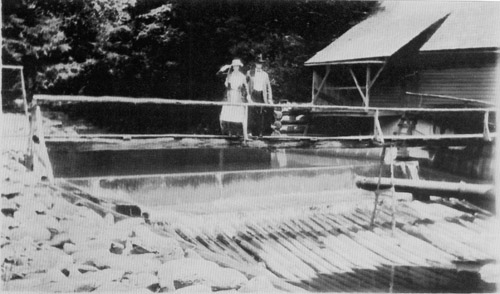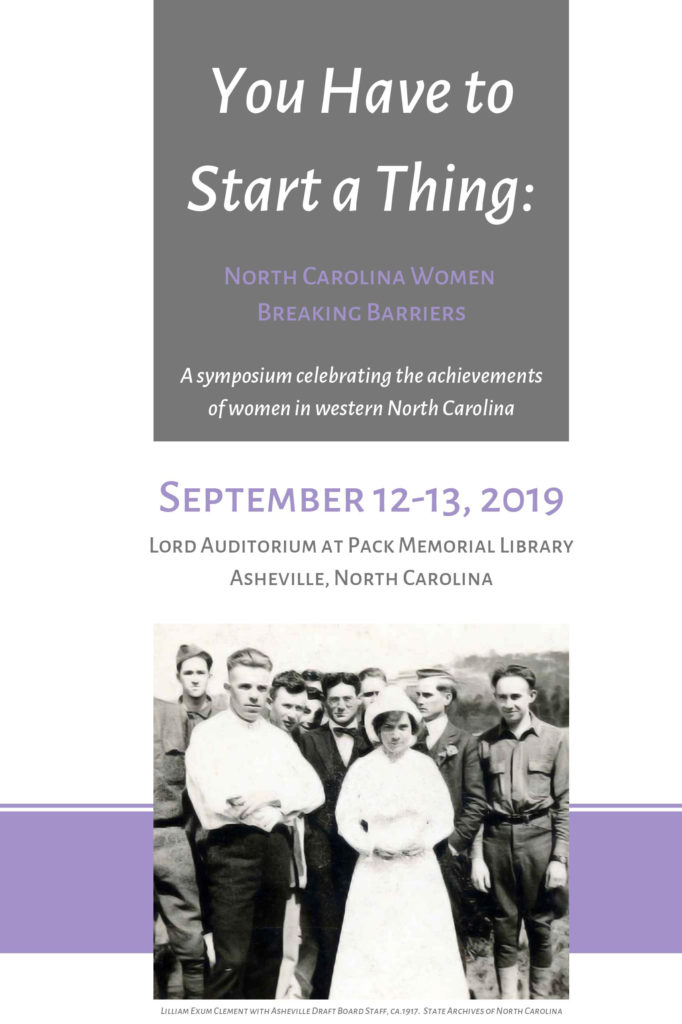The year 2020 marks the 100th anniversary of the passage of the 19th Amendment, which allowed women the right to vote. While some American women were granted the right to vote under this Amendment, there were still many inequalities that women were fighting to change. In Asheville, on Friday, September 12, 1919, an organization was created by several of these ground-breaking women in order to combat some of these inequalities and provide women with opportunities previously only afforded to men.
The Asheville Business and Professional Women’s Association began with 36 members, with Dr. Elizabeth Smith elected as the first President. According to an article in the Asheville Citizen-Times, “… the association is non-political, non-sectarian, and in no wise [sic] a union.” The Association was also self-supporting, with a primary goal of promoting better social and recreational opportunities for business and professional women.
One such professional woman who was also an organizing member and Vice President of the Association was Lillian Exum Clement. Clement was born near Black Mountain, and raised in Buncombe County. She studied law while working for the Buncombe County Sheriff’s Office and was admitted to the bar and began practicing as an attorney in 1917. Clement was widely known among law circles as “Brother Exum.” She represented Buncombe County as the Democratic candidate in 1920, nominated before women were even enfranchised. She was elected by a landslide (some 10,000 votes to around 40) and became North Carolina’s first female legislator, as well as the first female lawyer to practice without male partners in North Carolina. Clement’s victories helped continue the drive for women’s suffrage during this monumental time.

Lillian Exum Clement introduced 17 bills during her time as a Representative and was active in many local civic groups, including the Asheville Business and Professional Women’s Association. Clement’s legacy certainly lives on- in 1997, “Lillian’s List” was formed as a pro-choice, Democratic women’s group, supporting women for North Carolina office and providing scholarships to women attending law school. Clement died of pneumonia at age thirty-eight and is buried in Asheville’s Riverside Cemetery.
The family of Lillian Exum Clement graciously allowed UNC Asheville’s Special Collections to make 25 digital copies of various images related to Clement and Asheville, which is titled the Stafford and Wingate L. Anders Collection. UNC Asheville is also the repository for an oral history with Nancie Stafford Anders, daughter of Lillian Exum Clement. Anders speaks on her Mother, some of Asheville’s history, and the development of the College Street area in downtown Asheville.
Across North Carolina, several universities and archives are celebrating the 100th anniversary of women’s suffrage. In Asheville, there will be a two day symposium on this event. You Have to Start a Thing: North Carolina Women Breaking Barriers will feature speakers Thursday evening, September 12 and all day Friday, September 13 at Pack Memorial Library. This free event is sponsored by the UNC Asheville History Department and Pack Library. UNC Asheville History Faculty Dr. Daniel Pierce and Dr. Sarah Judson will be two guest speakers, and UNC Asheville History Alums Katherine Calhoun Cutshall and Catherine Amos will be presenting on Lillian Exum Clement and others like her- daring women who broke barriers and became catalysts for change in Asheville and the world beyond.

Sources:
Stafford and Wingate L. Anders Collection (027), D.H. Ramsey Library, Special Collections, University of North Carolina Asheville, 28804.
“Permanent Club is Organized by Women,” Asheville Citizen-Times, September 13, 1919.
